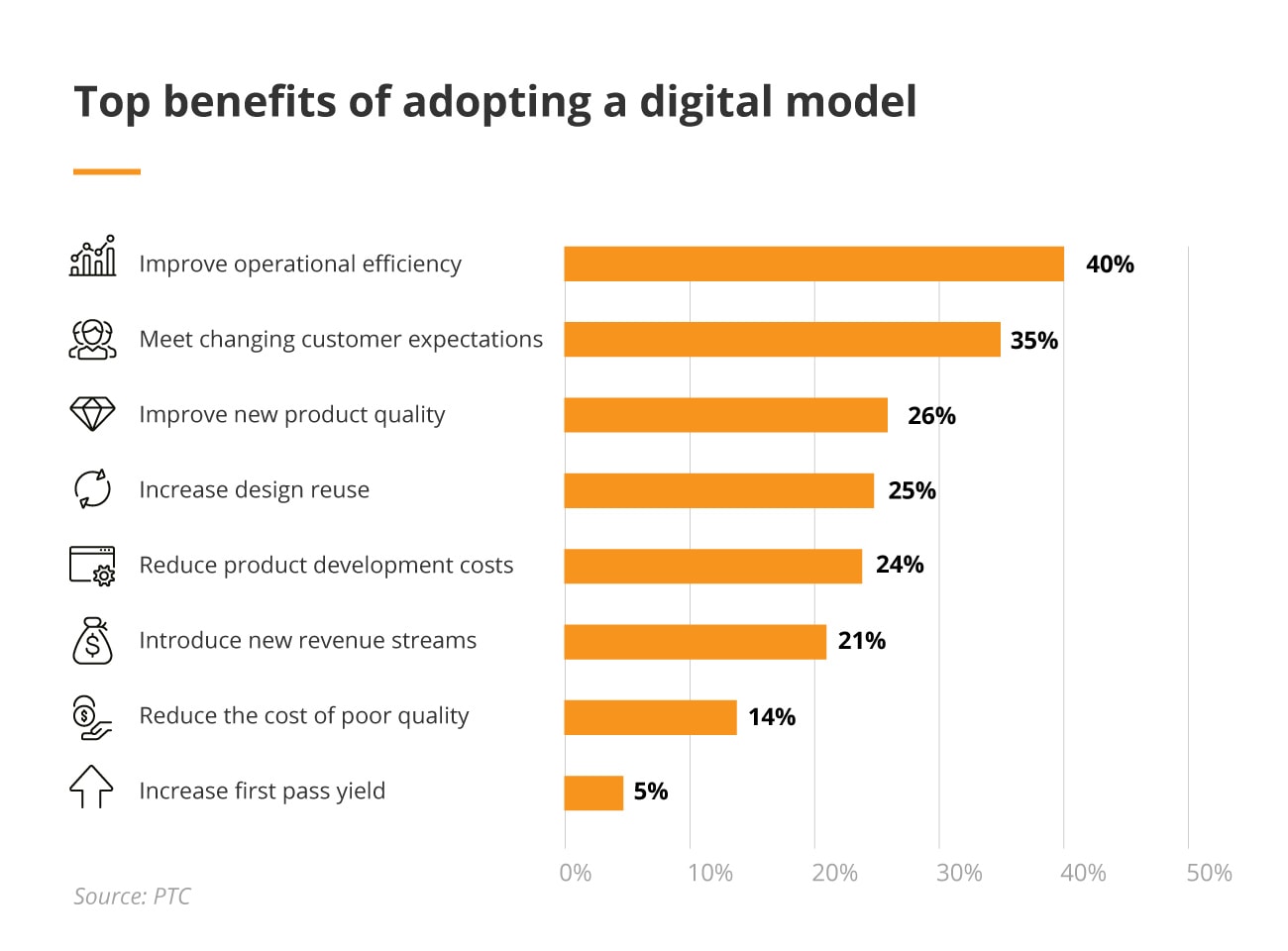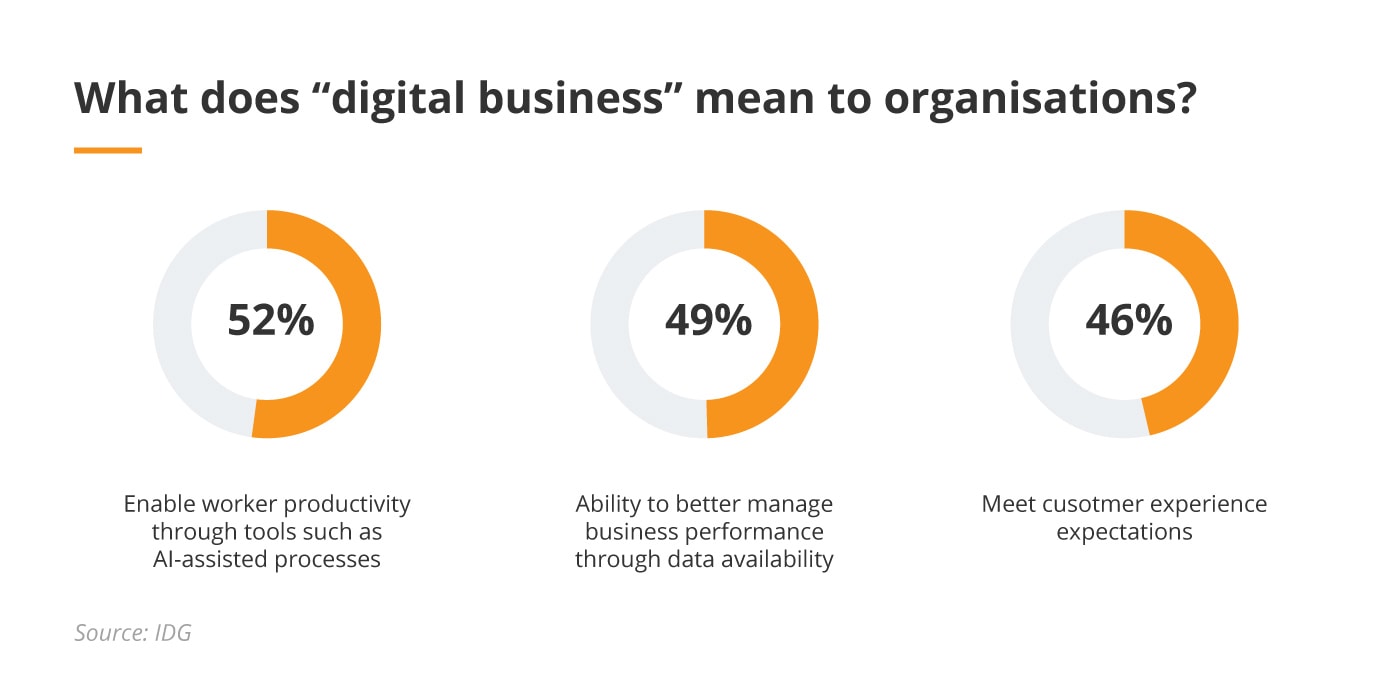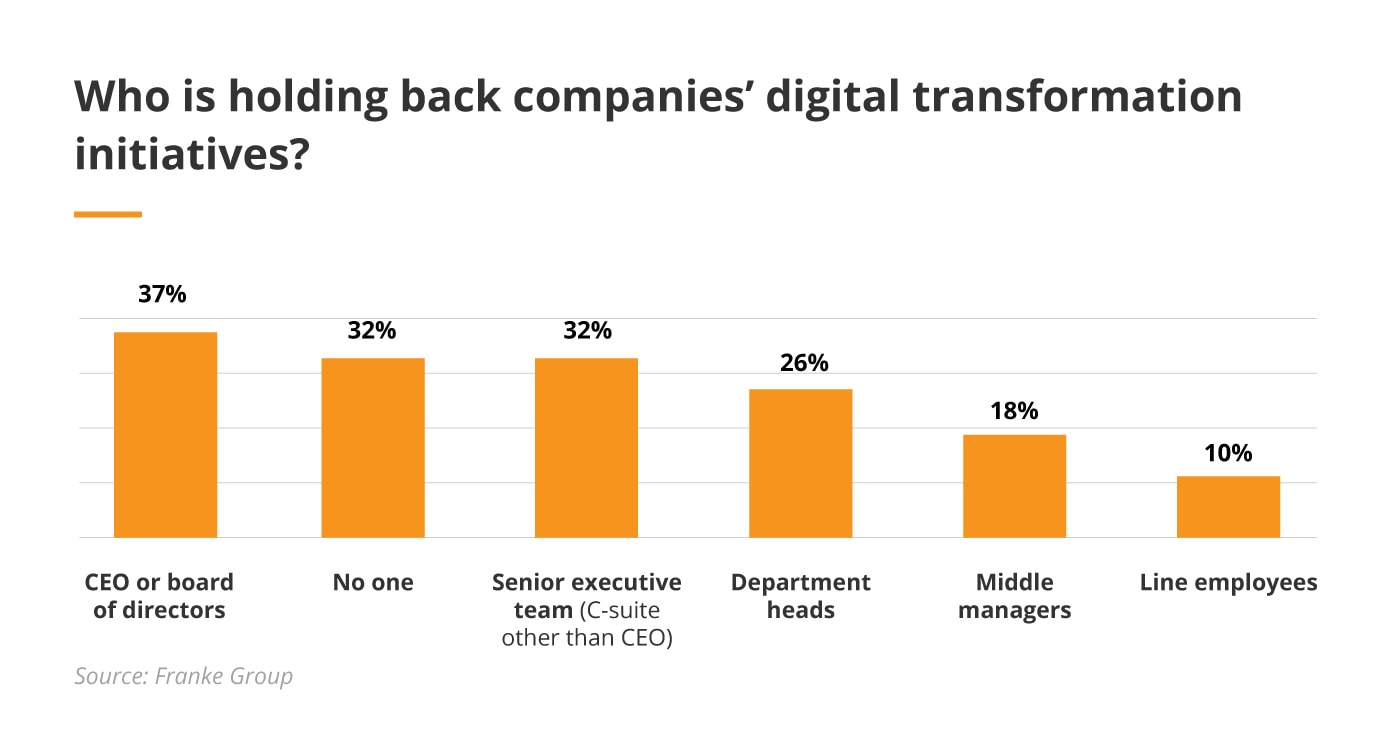
How to choose a Digital Transformation partner?
A good digital transformation company must be able to adjust to your organisation – your individual needs, requirements, goals, style and pace of work.
What does a Digital Transformation company do?
A digital transformation partner helps companies navigate the challenges of digital transformation initiatives. The consultants at these companies are among the best in their fields, and they focus on learning about the inner workings of their clients’ businesses.
Their first step in creating a digital transformation strategy is to assess the company’s existing state and determine which processes and legacy systems can benefit from being modernised or replaced with digital solutions and emerging technologies.
Why choosing the right Digital Transformation company is crucial?
The success of your overall business strategy heavily relies on your ability to choose the best digital transformation consulting partner. One that not only offers cutting-edge equipment but also assists you in navigating the unique challenges that your company faces.
With this knowledge, they can tailor the digital transformation journey to improve your business productivity, customer service, market position and benefit from a digital acceleration.
Moreover, a suitable partner should have the necessary skills and experience to navigate the complexities of digital transformation and help you with potential DT mistakes. Their vast expertise allows them to suggest creative solutions and effective strategies that you might not have considered otherwise.
Suppose you want to see whether a given company is an option worth considering. In that case, you need to start by conducting a preliminary screening to check a few important details and reject any vendors that don’t match your initial criteria.
Only then should you proceed with the next steps – otherwise, you will end up with too many companies to choose from and interview.

The hunt for Digital Transformation companies: what to look for?
In today’s landscape, choosing the right company for digital transformation projects is essential for businesses looking to innovate.
With many options available, focusing on key aspects of collaboration can help make an informed decision.
Comprehensiveness in digital world
A good digital transformation consulting firm must be able to guide you through your transformation process from start to finish – and even beyond. Why?
Because the process begins well before the first iteration – with the creation of a good digital transformation strategy – and continues well after the solution has been deployed, during the support and maintenance stage.
Your IT partner should be able to assist you with testing and verifying your ideas and help you select the best path to follow. Identifying your needs and pain points so that you can develop a plan tailored specifically to your business is crucial to success.
For example, at Future Processing, you can make sure your company is headed in the right direction during the IT Strategy Consulting, which is conducted by our experts.
New solutions and legacy modernisation
In some cases, new software may be necessary; in other cases, you may be able to just update your existing solutions. Your digital transformation compan should be able to do both, depending on what you really need in order to stay ahead of your competitors.
A flexible approach like this will help you optimise your costs and make the most out of the infrastructure that you use.
Of course, this requires a lot of innovative thinking, business intelligence and expert skills so that you don’t end up with a useless product or a bunch of “improvements” that don’t actually improve a thing.
This is why you need to develop a solid R&D strategy first and work with a team that will help you turn this strategy into a reality in accordance with the plan.
Experience in the market
When a company has many years of experience in business digitalisation, this is a clear sign that they’ve been doing a good job.
Otherwise, they wouldn’t have been able to last so long in the market. Their years of experience mean that they’ve probably been through many different kinds of situations, dealt with a wide variety of problems, overcome various difficulties and successfully faced a number of challenges.
However, this isn’t to say that a promising startup would not do their best to provide digital services. Experience is something that helps give you peace of mind, which is especially reassuring when you need to make such a serious investment.
Experts and their knowledge
The important thing here is to find out what kind of specialists a company has on board and their individual levels of experience in digital technology.
More often than not, good outsourcing companies boast about their specialists, especially if these experts help them stand out from their competitors.
Besides developers, project managers and graphic designers, check to see if they have experts with some other specialisations, such as solution architects, business analysts, UI/UX designers and data engineers.
Plus, it’s important to know what level of seniority they represent so that you won’t end up with a team that consists of junior specialists only.
Also, always check attrition rates. The lower the number, the more flawless the collaboration (since, for example, fewer onboarding processes translate into fewer knowledge transfers).
Technologies and technological capabilities
If you already know what kind of technologies you’re interested in – look into them right away.
However, technology is just a matter of tools, and the tools you use are usually based on your strategy and solution. That’s why it’s important to find out as much as possible about a company’s areas of expertise.
Check to see if they work with cloud computing, whether they have experience with artificial intelligence and machine learning solutions, big data analytics, software development, mobile app development and how advanced they are in terms of e-commerce technologies – depending on what exactly you’re looking for.
Client references and testimonials
It’s a good practice to check on the number and kind of clients a digital transformation company has worked with.
Ideally, you want to look for companies that have cooperated with clients running businesses that are global leaders or somewhat similar to yours (at least, in terms of the solutions they deliver).
Also, don’t forget to check out the client testimonials and any opinions and reviews about the company from external sources, such as company review portals.
Scalability of digital technologies and solutions
The pace of your work should also be adjusted to your needs and budget. You can start small and grow gradually. There’s definitely no need to do everything at once – actually, quite the opposite.
Identifying and prioritising promising opportunities is essential because it allows you to better adapt to the ever-changing environment and your customer’s needs.
Focus on reaching each goal, one by one, as this will give you enough time to react and alter your course whenever necessary.

Willingness to learn and enhance digital transformation strategy
Remember that no company excels in everything. However, the best players in the market are always willing to learn and expand their fields of expertise – which is an approach that also benefits anybody who chooses to work with them.
Bearing this in mind, during your preliminary screening, check to see if any of these companies hold internal or external training sessions for their employees.
Look at how they stay up-to-date with the latest trends and emerging technology; see whether they have the drive to innovate and how open they are to trying and adapting the most promising solutions.

Post-implementation support and training
When choosing a partner for your digital transformation, ensure that they offer post-implementation training and support.
Digital solutions require continuous maintenance and monitoring to address any potential bugs and ensure that everything runs smoothly after the initial rollout.
Budgeting for Digital Transformation collaboration
When creating a budget for digital strategy and business process partnerships, it is important to consider specific aspects:
Assessment of Partnership Value: Before allocating funds, evaluate the potential value a partnership can bring. This includes assessing the partner’s ability to enhance your digital capabilities, contribute to innovative business processes, and align with your digital strategy goals.
Cost-Benefit Analysis: Conduct an analysis of the costs involved in the partnership versus the expected benefits. This might include direct costs like technology investments, meetings with digital transformation consultant, training, and integration, as well as indirect costs like time and effort in managing the partnership.
Resource Allocation: Identify the necessary resources for the partnership – financial, human, and technological. Make sure that the budget includes the costs of integrating any new systems or processes that the partner introduces to the business.
Risk Management: Have a risk management plan in place for the digital transformation services partnership. To anticipate and mitigate potential losses from unforeseen issues, contingency funds or insurance must be considered as viable options.
ROI Tracking: Establish metrics and KPIs for digital transformation to track the return on investment. This helps in understanding whether the partnership is bringing the planned results to enhance your digital strategy and improve business processes.
Scalability and Flexibility: The budget should allow the collaboration to adapt to business growth and market changes, which may require additional financial adjustments.
Legal and Compliance Costs: When budgeting for a partnership, include legal and compliance costs related to data sharing or operating in different regulatory environments.
Check out what else to look out for when choosing a digital transformation services:
How Cloud enables Digital Transformation and accelerates it?
10 companies with successful digital transformation [with examples]
Digital Transformation managed service provider: a comparative analysis
Following the checklist above will allow you to easily narrow down your list of potential IT partners. Be as meticulous and insightful as possible, and choose only the most suitable and reliable companies.
Remember that your next step will probably be to send out a Request for Information (RFI) so that you can learn more about specific details of interest that are not available anywhere else.
Conducting preliminary screening will save you a lot of time since you will only send your RFIs to the vendors on your shortlist.
We hope you have found this article helpful! If you have any questions or want to learn how we, as an IT partner, can help your company develop, don’t hesitate to contact us.




